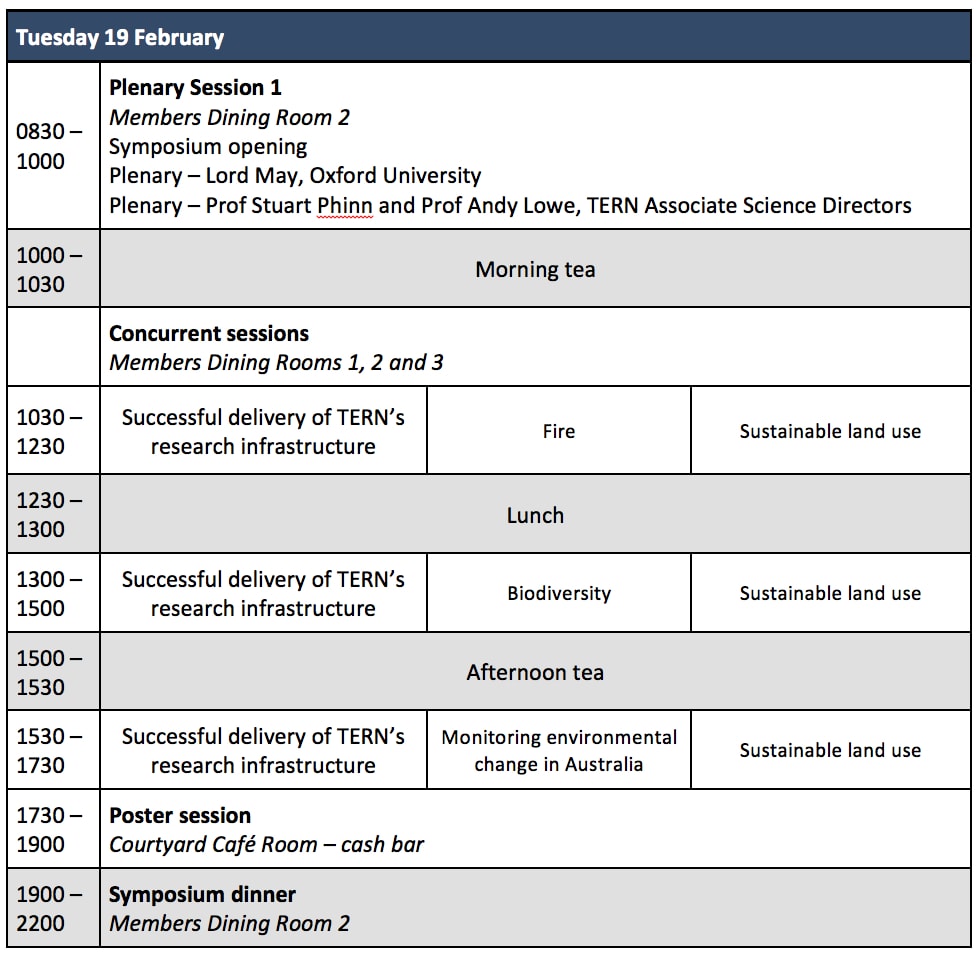Australian ecosystem science is changing. At a time when the need for science to help understand and solve ecosystem problems has never been greater, our research and management communities are also adjusting to a global shift to increasingly open access, coping with the opportunities and problems of the big-data era, and developing novel efficiencies and collaborations driven by ever-tightening research budgets.
The 2013 TERN Science Symposium in Canberra next month is an opportunity for everyone with an interest in Australian ecosystem science and management to contribute to this transformation.
We’ve been delighted by the diversity of stakeholders registering to attend: officers and managers from many state and federal government departments, representatives of industry peak bodies, natural resource management and community groups, private consultants, public companies, and, of course, researchers of all descriptions. We have registrants from every state and territory in Australia, plus a number travelling from overseas. Many of these people are already active users of TERN infrastructure or data products, and many others are names we’re hearing for the first time.
It is abundantly clear that there’s huge interest in how Australian ecosystem science is changing, and that people want to have their say.
Our two international plenary speakers, Lord Robert May (former Chief Scientist of the UK) and Dr David Schimel (former head of National Ecological Observatory Network in the US), will give us the benefit of their experiences helping transform ecosystem science in the UK and the US. Our homegrown plenary speaker, Professor Kris French (president of the Ecological Society of Australia), will refer to her own career and datasets in a frank discussion of the costs and benefits of this transformation, whether TERN is helping, and how TERN could help more. Another interesting perspective will be given at the symposium dinner by Mr Alan Noble, Google’s Director of Engineering in Australia and New Zealand. Among other topics, he will discuss Google’s role in the vanguard of the global movement towards open data.
The needs and interests of the audience have been uppermost in our minds when designing the symposium program. Over 100 presentations are grouped into sessions by topic (see below) and include not only talks from TERN facility staff about their infrastructure and data products, but also talks from Australian ecosystem researchers, managers and other stakeholders about how they’re using TERN’s infrastructure to achieve things that weren’t previously possible.
There are also a number of opportunities for informal networking, in addition to the symposium dinner, including the opening cocktail function on the evening of Monday, 18 February, the poster session on the afternoon of Tuesday, 19 February, and the special event that we will host with Questacon on the evening of Wednesday, 20 February. Full details are in the symposium program, and are available while registering. Registration closes on Thursday 31 January and places are limited – so be sure to get in soon!
We look forward to talking with you then!
Published in TERN e-Newsletter January 2013









